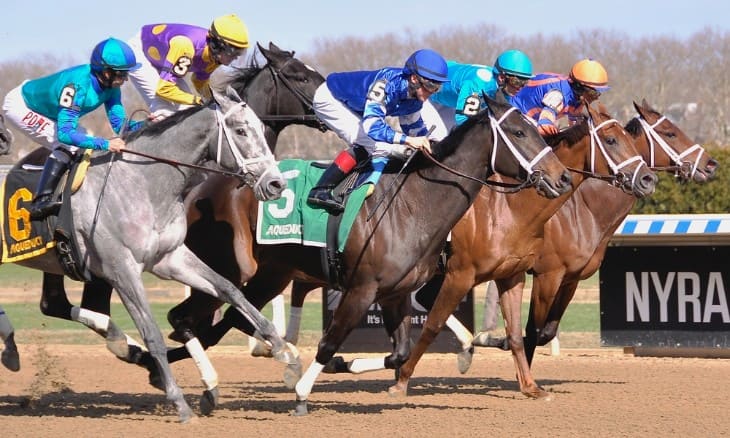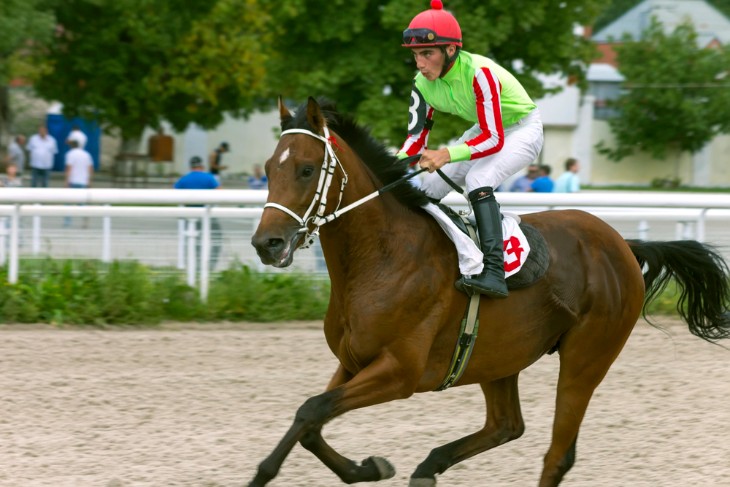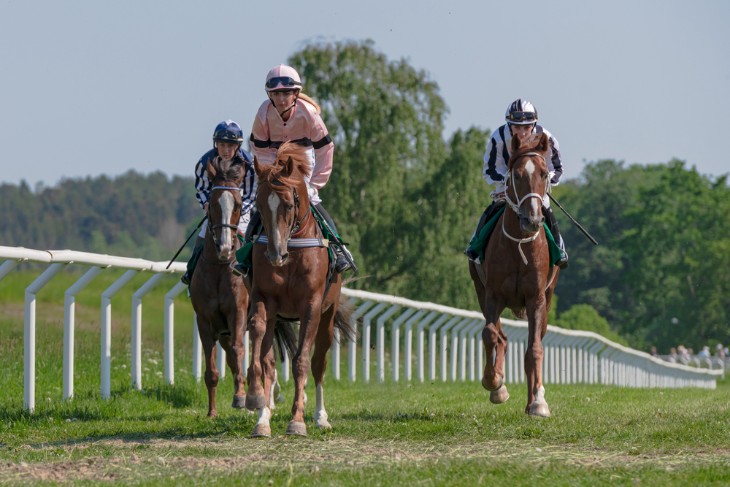Beyond just watching, betting on horse racing offers an additional layer of engagement. A solid betting strategy can transform you from a mere observer to an active participant, presenting opportunities for informed decisions and potential financial gains.
The Basics of Horse Racing Betting
Before diving into the intricacies of horse racing betting strategy, it's essential to establish a solid understanding of the fundamentals. At its core, horse racing betting involves predicting the outcome of a race and placing wagers accordingly. The odds assigned to each horse reflect its perceived chances of winning, and these odds determine the potential payout. The greater the odds against a horse, the higher the potential reward if it manages to secure victory.
As a novice bettor, it's crucial to grasp the key terminology. "Stake" refers to the amount of money you're willing to bet on a particular horse, while "payout" signifies the total amount you stand to receive if your prediction is correct. "Odds-on" means the odds are less than even money, while "odds against" indicates a potential payout greater than the initial stake.
Understanding Odds and Payouts
Mastery over odds and payouts is a cornerstone of effective horse racing betting. The odds provided by bookmakers reflect their assessment of a horse's likelihood of winning, based on various factors including form, track conditions, jockey performance, and past performances. These odds are presented in different formats, including fractional, decimal, and moneyline.
Fractional odds, commonly used in British bookmaking, express the potential profit relative to the stake. For instance, if a horse is listed at 3/1 odds, a £1 bet would yield £3 in profit plus the initial £1 stake if the horse wins. Decimal odds, popular in Europe, represent the total return including both profit and stake. An odds value of 4.00 indicates a potential return of £4 for every £1 staked, including the initial stake. Meanwhile, the moneyline format, more prevalent in American bookmaking, uses positive and negative numbers to convey the payout on a £100 stake. A horse with +300 odds would yield a £300 profit on a £100 bet if successful.
Understanding odds enables you to evaluate the potential risk and reward associated with each wager. It's important to note that odds don't solely reflect a horse's chances of winning but also incorporate bookmakers' profit margins. This insight empowers you to make informed decisions, choosing bets with favourable risk-to-reward ratios based on your analysis of the race.
For more information about click here: How to Calculate Betting Odds and Payouts.

Types of Horse Racing Bets
As you immerse yourself further into the world of horse racing betting, you'll encounter a diverse array of betting options beyond the simple win bet. These betting types allow you to tailor your wagers to your level of risk tolerance and your understanding of the race dynamics.
One popular bet is the "Place" bet, where you wager on a horse to finish either first or second. While the potential payouts are lower than those of a win bet, the chances of winning are higher, offering a more conservative approach. Similarly, the "Each-Way" bet combines a win and a place bet in a single wager. If your chosen horse wins, both the win and place bets pay out. If it finishes second, only the place bet yields a payout, mitigating potential losses.
For those seeking even more intricate bets, "Exacta" and "Trifecta" bets involve predicting the exact order of the first two or three horses to finish, respectively. These bets offer substantial payouts due to their increased complexity and lower likelihood of success. "Quinella" and "Reverse Forecast" bets are variations of the exacta, where the selected horses can finish in either order.
Moreover, "Forecast" and "Tricast" bets extend the predictive challenge by requiring you to accurately predict the first two or three horses in the correct order. These bets demand both a strong grasp of the horses' abilities and an astute assessment of the race dynamics.
As you explore these various betting types, consider your risk appetite and your confidence in your race analysis. A well-placed exotic bet can yield impressive rewards, but it's essential to strike a balance between ambition and prudence, aligning your bets with your strategic goals.
Analysing Race Form and Past Performances
Successful horse racing betting hinges on a thorough analysis of each horse's race form and past performances. This step is akin to studying a player's statistics before placing a bet on a football match or evaluating a team's recent performances before wagering on a cricket match.
The race form provides a historical record of a horse's recent races, detailing its finishing positions, distances, and track conditions. By reviewing a horse's recent form, you can discern its current level of fitness and suitability for the upcoming race. Pay attention to horses that have displayed consistency and improvement in recent races, as they may be poised for a strong showing.
Examining past performances extends beyond the horse itself. Jockeys and trainers play pivotal roles in a horse's success. Analyse their track records, identifying patterns of success and areas of expertise. A skilled jockey who has a history of performing well on a particular type of track can significantly influence a race's outcome.
Furthermore, consider the horse's performance on different track surfaces and under varying weather conditions. Some horses excel on firm ground, while others thrive in wet or soft conditions. Understanding how these factors impact a horse's performance can provide a crucial edge in your betting strategy.
Evaluating Jockeys and Trainers
In the intricate world of horse racing, jockeys and trainers are akin to captains and coaches, steering their equine athletes towards victory. As you dive deeper into horse racing betting strategy, delving into the realm of jockey-trainer partnerships can provide valuable insights for your wagers.
First and foremost, consider the reputation and track record of both the jockey and the trainer. Seasoned jockeys who have demonstrated their skills in handling high-pressure situations and making split-second decisions can often tip the scales in their horse's favour. Similarly, trainers with a history of developing winning horses and executing effective race strategies bring an added layer of credibility to their entries.
Closely examine the historical collaborations between specific jockeys and trainers. Certain jockey-trainer pairs have an innate synergy, working in tandem to consistently achieve exceptional results. Assess their past performances together, noting any patterns or trends. A strong jockey-trainer partnership can turn a promising contender into a formidable force on the track.
Keep an eye out for jockeys who have a knack for adapting to different horses and race conditions. Flexibility and versatility in a jockey's riding style can prove advantageous, as they can adjust their tactics to maximise a horse's potential in any scenario.
Factors Affecting Track Conditions and Weather
As any seasoned punter knows, the state of the racecourse and the prevailing weather conditions can exert a profound impact on race outcomes. The texture of the track, whether it's firm, yielding, or soft, can drastically alter a horse's performance. Likewise, rain, wind, and temperature changes can influence a horse's comfort level and overall performance.
When handicapping a race, consider the specific attributes of horses that tend to excel on certain types of tracks. Some horses relish the challenge of a softer surface, while others thrive on a firmer terrain. Analyse the past performances of horses on similar track conditions to identify those that have historically demonstrated prowess in similar circumstances.
Weather, too, is a variable that demands your attention. A rainy day can transform the race dynamics, favouring horses that have shown an affinity for wet conditions. On the other hand, a sudden heatwave can affect a horse's stamina and endurance, making it important to assess how individual horses cope with fluctuating temperatures.
Utilising Betting Exchanges and Bookmakers
In the digital age, the world of horse racing betting has expanded beyond the confines of the racetrack. The advent of online platforms, including betting exchanges and bookmakers, has provided punters with a plethora of options to engage with the sport and place their wagers.
Betting exchanges offer a unique twist on traditional betting. Instead of placing bets against a bookmaker, you're betting against other punters. This dynamic creates an environment where you can not only back a horse to win but also lay a horse to lose. This dual-sided approach allows for greater flexibility in crafting your bets and can present opportunities for strategic hedging.
On the other hand, traditional bookmakers provide a wide range of betting markets, including win, place, and exotic bets. They often offer comprehensive odds and promotions to attract punters, making them a convenient choice for those seeking simplicity and variety.
Before placing your bets, it's crucial to research the reputation and credibility of the betting platform. Look for licensed and regulated operators that adhere to responsible gambling practices. Additionally, explore the odds and betting options available, as different platforms may offer varying selections.

Advanced Betting Strategies and Handicapping Techniques
As your journey through the realm of horse racing betting continues, you'll encounter a variety of advanced strategies and techniques that can elevate your betting game to new heights. These approaches require a deeper understanding of the sport and a willingness to engage in more intricate analyses.
One such strategy is "value betting" Instead of merely assessing a horse's chances of winning, value betting involves identifying instances where the odds offered by bookmakers are higher than your calculated probability of a horse's success. By consistently identifying value bets, you can potentially capitalise on opportunities where the bookmakers' assessments differ from your own.
Handicapping techniques play a crucial role in your betting prowess. "Speed figures" and "class ratings" offer quantitative insights into a horse's past performances, allowing you to compare its abilities with those of its competitors. Meanwhile, "trip handicapping" focuses on the dynamics of a particular race, considering factors such as a horse's position throughout the race, traffic encountered, and the impact of jockey decisions.
Consider delving into "spread betting" a strategy that involves predicting how much a horse will win by rather than whether it will win at all. This approach can yield substantial profits if your predictions are accurate, but it also carries a higher level of risk due to its volatile nature.
Embrace these advanced betting strategies with caution and a willingness to learn. Mastery comes with experience and continuous refinement of your analytical skills. By combining these techniques with your existing knowledge, you'll have a comprehensive toolkit at your disposal to approach each race with a strategic edge.
With responsible gambling as a guiding principle and a commitment to continuous learning, you'll be well-equipped to navigate the complexities of horse racing betting. Armed with a comprehensive understanding of odds, handicapping techniques, and strategic approaches, you're primed to enhance your enjoyment of the sport while optimising your potential for success.








